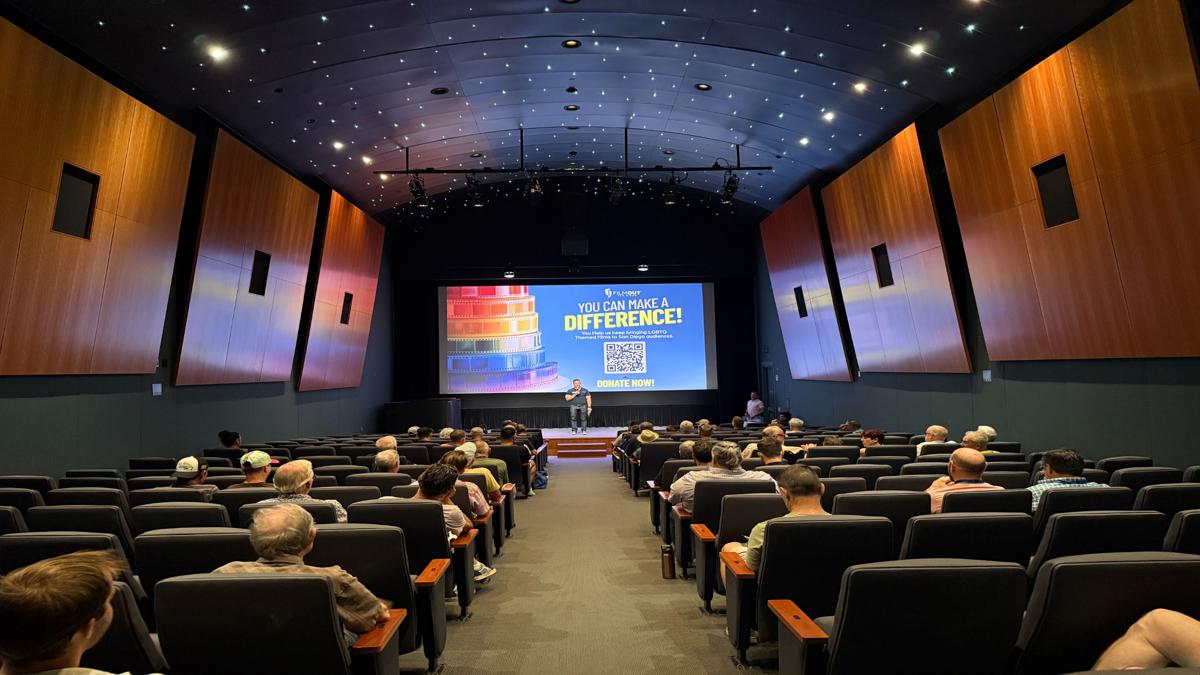San Diego’s annual LGBTQ+ Film Festival wrapped up at Balboa Park, celebrating a spectrum of underrepresented voices and cinematic works. Organized by FilmOut, the event showcased powerful narratives about identity, community, and belonging while also highlighting looming concerns about future funding.
That’s a wrap on San Diego’s annual LGBTQ+ Film Festival

Key Takeaways:
- The festival is the only LGBTQ+ film event of its kind in San Diego County
- FilmOut began in the 1990s as a thesis project at SDSU
- A short film called “Do Us Part” tackled sensitive issues such as eating disorders
- Organizers express concern over potential funding cuts
- The organization, known as FilmOut, hosts year-round screenings in addition to the annual festival
Introduction
San Diego’s annual LGBTQ+ Film Festival concluded on Sunday at the Museum of Photographic Arts in Balboa Park. Over several days, the festival provided a vibrant platform for underrepresented voices within the LGBTQ+ community, offering attendees an array of films that encompassed both serious topics and more lighthearted storytelling.
Origins of the Festival
FilmOut, the organization behind the festival, traces its beginnings back to the 1990s when it started as a thesis project at San Diego State University. “It’s an opportunity to educate, enlighten, and entertain,” said Kaleb Gabriel, FilmOut’s Executive Director. Over the years, the group has continued to focus on elevating LGBTQ+ narratives, highlighting unique stories often overlooked in mainstream media.
Featured Films and Themes
Among the dozens of films presented this year was a short film titled “Do Us Part.” Written and directed by Ryan Beene, it follows a character named Tyler, played by Tyler Yath, as he struggles with an eating disorder. Beene drew inspiration from his own experiences, explaining, “Especially within the Queer community, there’s a lot of male validation that we’re looking for, and a lot of times that gets put on your body and what you look like.”
Yath approached his role carefully, studying memoirs and literature about eating disorders to bring authenticity and depth to his portrayal. “It should feel uncomfortable,” he said of the film’s central theme. “Hopefully they can walk away and really sit with the film and think about it and just come to have a better understanding of other people.”
Funding Challenges
Despite strong community support and a healthy lineup of sponsors, festival organizers remain wary of potential funding issues. Recent cuts at the federal level could trickle down and affect grants from local government agencies. These grants are critical in ensuring the annual event continues, and FilmOut hopes that San Diegans will step up and support their mission.
Looking Ahead
FilmOut stands committed to sharing important stories not often depicted in mainstream cinema. “We have a lot to offer to the world,” Gabriel observed, noting that the festival helps the broader community see not only differences but also the many similarities across people’s lived experiences.
Even though the festival ended on Sunday, FilmOut hosts screenings throughout the year, encouraging the community to remain engaged, learn from different perspectives, and celebrate the power of inclusive storytelling.











